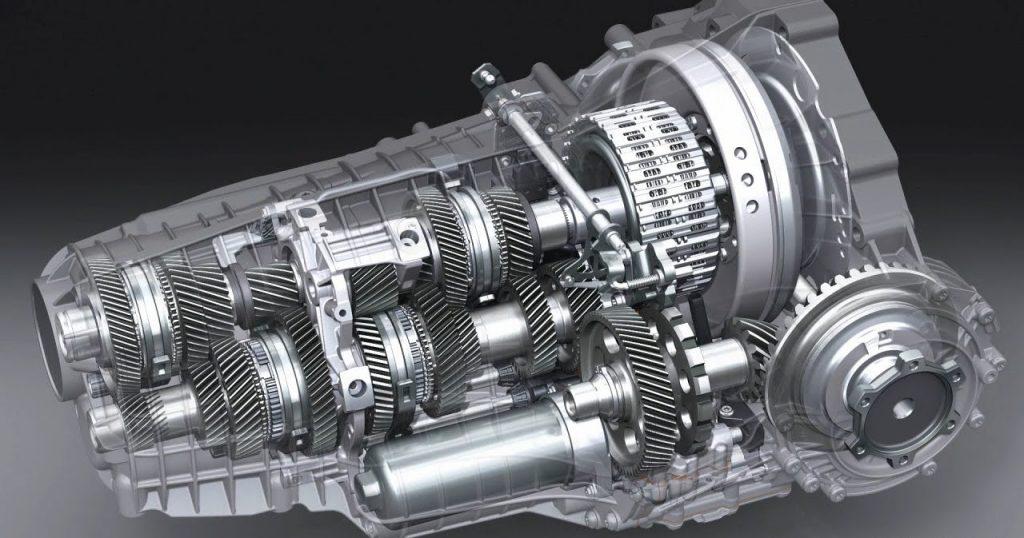DSG or the direct-shift gearbox comes as a semi-manual or fully automatic gearbox without a clutch pedal system. It is responsible for controlling the speed and the torque in a vehicle such as a car as per the terrain’s demand. Eliminating the need for the user to control the gear system manually, the DSG system is used in brands like Audi, Volkswagen, Skoda, and more. However, being so charismatic mechanism in a vehicle, DSG transmission problems are not an exception. And some of the most common transmission troubles are mentioned here:
Contents
What Is A DSG transmission?
DSG or direct shift gear is similar to the DCT (dual-clutch transmission), but it eliminates the disadvantages of the DCT gearbox. This transmission is equipped with two clutches instead of one torque converter. DSG can change gears quickly, with smoother acceleration compared to other traditional gearboxes. Some car models equipped with this type of gearbox include BMW M3, Volkswagen Tiguan Allspace…
The advantage of DSG transmission is the ability to accelerate quickly, shift smoothly, and consume less fuel than other types of automatic transmissions…
15 years ago, Volkswagen launched the first DSG and carried out large-scale production, starting the trend of automatic transmission technology for modern times. Giving a new breeze to history, the DSG gearbox is considered more economical and more efficient than previous gearboxes.
DSG has completely changed the way shifting gears or more easily understood, shifting gears and making it all automatic. The transmission’s gears were almost always shifted manually before the DSG arrived in 2003, after which point it all became automatic. To date, the DSG has been the choice of more than 26 million users on Volkswagen’s own car models and car brands belonging to Europe’s largest automobile group Volkswagen.
Common 6-Speed DSG Transmission Problems
Let’s get to know how an automatic gearbox or the transmission can trouble you and what can be the possible solutions.
1. Quivering on engine start
People often assume it to be one of the DSG transmission problems. However, it is related to the transmission area and not the transmission particularly. If you happen to encounter trembling when the car is idle, the dual mass flywheel may be the reason. You can find the part between the transmission and the engine in which two plates work together to provide cushioning.
When the flywheel is worn out, the cushioning becomes limited or not at all, and you experience the tremble. So, before you approach for the transmission, make sure to have the flywheel checked. It is most noticeable on gearshifts and replacing the part is the ultimate solution in this case.
2. Mechatronic failure

Read more:
The state where the gear shifting becomes limited is known as a mechatronic failure; in most cases, the gear remains third. The problem can be detected however by having a look at the dashboard and checking out the indicator. The PRNDS lights can be useful for depicting the specific code. Afterward, you need to get it checked using a diagnostic machine or call a professional.
To get better at maintaining your car, visit the Maintenance Tips.
The code can be ‘clutch limits reached’ which means there is a fault in the clutch. Another code can be ‘adaptations’ which indicates you need an adaptation reset. If the codes show any sensor or gear problems, it means you need a repair for the electro-hydraulic control unit that controls the gearbox.
Well, if this is the case, it can be an expensive deal, and also the repair companies are limited. If you lose the reverse partially or entirely, then it is an obvious indication that the mechatronic needs replacement.
3. Noisy bearings
Sometimes, the mechanical components of the DSG transmission fail, and most of the time it is the bearing wearing out. In this case, you can notice an annoying sound while driving. The issue can be carried forward or left untreated for some time, but it should not be in the long run.
You need to replace the bearings with a professional or get the bearing kit yourself and do some DIY. The sooner you fix the issue the fewer chances you get for any further damage.

4. Temperature sensor failures
The DSG transmission relies on temperature sensors to ensure it operates within a safe range. A faulty temperature sensor can send incorrect readings, which can cause the transmission to go into a “limp” mode as a precaution.
5. Clutch wear
Just like in manual transmissions, the clutches in a DSG can wear out. Premature wear can result from aggressive driving, but some owners have reported unexpected wear even under normal driving conditions.
Watch more:
Above All
These are some of the common DSG transmission problems that should be treated as they occur. In a complicated case, the replacement or repair can be expensive; you should go with fixing the issue; however to continue the experience of the luxurious ride.



